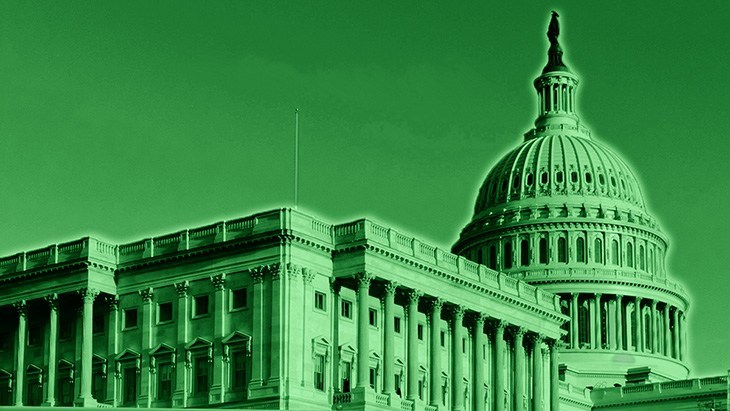
A growing percentage of Americans want Congress to prioritize legalizing marijuana. Federal lawmakers, and Democrats, in particular, would be wise to listen to them.
President Biden took partial steps [on Thursday] by announcing pardons for individuals with federal convictions for simple marijuana possession and by calling for a review of how marijuana is scheduled under federal law, but these efforts – while admirable first steps — don’t nearly go far enough for voters.
Specifically, polling data released this week by Morning Consult/Politico finds that nearly half of registered voters say that it should be either a “top priority” or an “important priority” for Congress to “pass a bill to legalize marijuana.”
Legalizing cannabis is of particular importance to younger voters and Democrats. Among those between 18 and 44 years of age, more than half of all respondents said that Congress should prioritize the issue. Among registered Democrats of any age, 54 percent of respondents said that lawmakers ought to prioritize legalization. One-quarter of Democrats said that it should be one of Congress’s “top” priorities.
The poll is far from the only national survey to identify legalization as a pressing political issue for voters. Survey data provided by YouGov.com similarly reported that the majority of Americans back a variety of marijuana-specific legislative reforms, including efforts to expunge the records of those with past cannabis convictions and to permit banks and other financial institutions to more easily provide services to state-licensed marijuana businesses. Sixty percent of those polled, including 72 percent of Democrats, said that lawmakers should take steps to make “marijuana legal in the United States.”
Another Morning Consult/Politico poll, conducted in April, similarly reported that most younger voters, Democrats, and African Americans believe that “passing a bill to legalize marijuana” should be among Congress’ foremost priorities.
So far, however, most elected officials haven’t gotten this message. In fact, according to a recent analysis by the Brookings Institution, the majority of candidates seeking federal office this election have refused to publicly weigh in on the issue of marijuana legalization.
Authors of the Brookings review analyzed the publicly stated views of over 2,300 candidates running in U.S. congressional primaries. They reported that most candidates (86 percent) “either made no mention, staked out an unclear position, or explicitly opposed cannabis reform.”
Congressional lawmakers’ ongoing silence and inaction on this issue is a gross political miscalculation. It’s also a wasted opportunity to appeal to a wide swath of voters. That is because, in this era of hyper-partisan politics, cannabis legalization is one of the few issues that appeals to voters across party lines. For instance, nationwide polling compiled by Quinnipiac University finds that 69 percent of adults — including 78 percent of Democrats, 67 percent of independents, and 62 percent of Republicans — believe that “the use of marijuana should be made legal.”
With the midterm elections fast approaching, federal lawmakers — and Democratic leadership in particular — would be wise to heed voters’ calls and to fast-track legislative efforts to amend America’s failed and unpopular marijuana prohibition laws. Doing so would galvanize the Democratic base while simultaneously appealing to many Republicans and Independents — in a way that few if any other hot-button political issues would. It would affirm America’s longstanding principles of federalism and appeal to Americans’ deep-rooted desires to be free from undue government intrusion into their daily lives.
Most importantly, repealing marijuana prohibition would adjust federal law to America’s rapidly changing cultural and legal landscape. Nineteen states now legalize and regulate marijuana for adults and most allow its access for medical purposes. This total is likely to grow larger after November when voters in five additional states will decide on the legalization issue at the ballot box.
In such an environment, politicians’ failure to act is not only bad policy — it’s also bad politics.
President Biden, by taking executive action yesterday, made the first move. Now Congress must follow suit.
This op-ed originally ran in TheHill.com on October 7, 2022.














